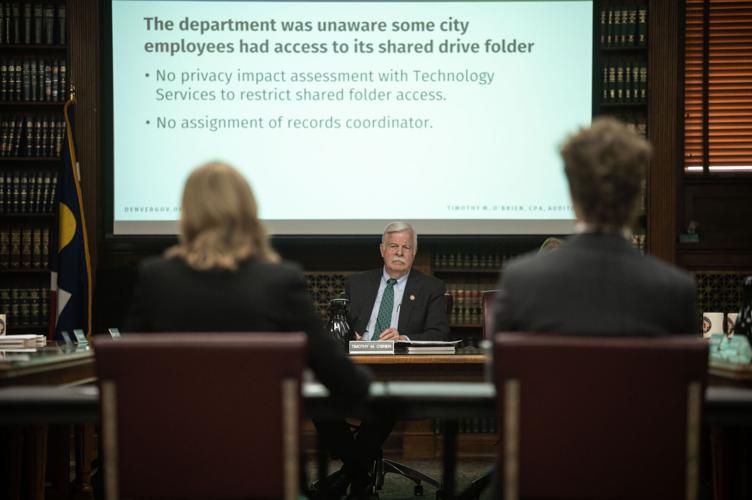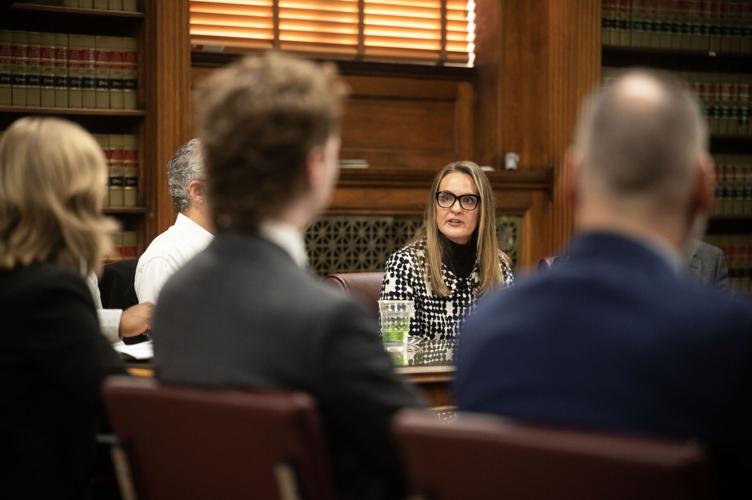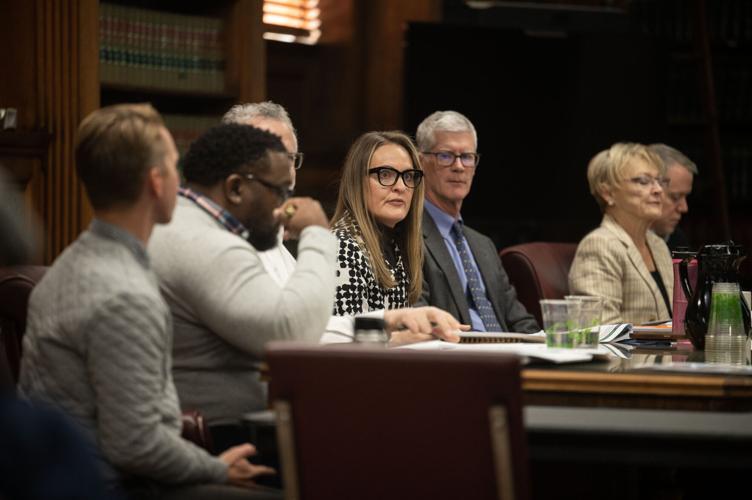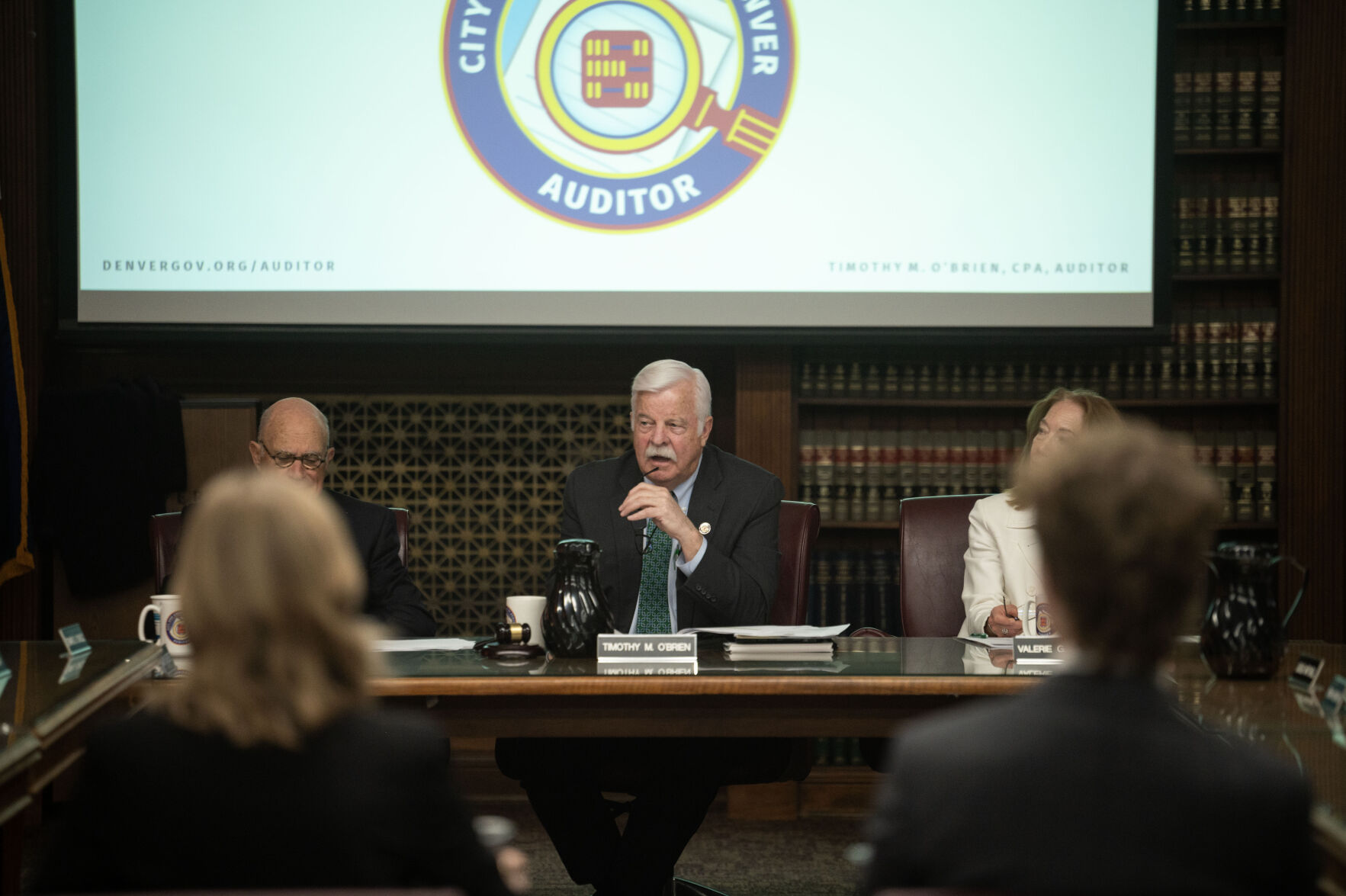Audit: Poor organization, gaps in security and fiscal accountability beset Denver’s shelter system

Denver Auditor Timothy O’Brien listens to a report that the city’s Department of Housing Stability (HOST), which oversees many of Denver’s homeless shelter operations, lacks effective systems for monitoring shelter providers' performance during a meeting of the Denver Audit Committee on Thursday, Nov. 21, 2024. (Stephen Swofford, Denver Gazette)
Stephen Swofford/Denver Gazette
Denver Mayor Mike Johnston’s citywide program to provide shelter to homeless people is failing to adhere to some accountability measures meant to safeguard the use of taxpayer dollars and meet some of its most basic goals, according to a new city audit report released Thursday.
Notably, the city’s housing department suffers from “poor organization,” and it could not provide documentation on the tens of millions of dollars of shelter-related spending, the audit said.
Johnston’s office pushed back on the report, arguing the audit is based on old data and the situation today is markedly different than what it was eight months ago.
The audit is the first comprehensive look into the city’s shelter system following Johnston’s efforts to curb homelessness in Denver. While he was campaigning for the city’s highest office, Johnston had promised to end homelessness in his first term. He declared a state of emergency soon after taking office, primarily as a means to fast-track spending for “micro-communities” and shelters.
In June, the City Council learned that the Johnston administration was on track to spend $155 million between July 2023 and December 2024 — $65 million more than what the mayor previously said it would cost.
The audit released on Thursday found that the city’s Department of Housing Stability (HOST), which oversees many of Denver’s homeless shelter operations, lacks effective systems for monitoring providers’ performance. The oversight concerns included deficiencies in departmental organization, financial management and accountability, according to a statement from Denver Auditor Timothy O’Brien.
Additionally, O’Brien said the department also failed to ensure adequate safety measures at one shelter, track shelter-related expenses comprehensively, and enforce contracting requirements for invoices.
“Housing Stability’s poor organization is negatively affecting operations at Denver’s shelters,” Denver Auditor Timothy O’Brien said in a statement. “These issues need to be addressed because vulnerable populations are at risk.”
Under its agreement with the city, the Salvation Army, for example, was tasked with providing security measures — including cameras, system hardware, monitoring, and security personnel — for the former DoubleTree hotel, which now operates as The Aspen, a contract shelter for which the city is allocating $807,000, according to the audit report.
By mid-March 2024 — approximately 90 days into the contract — the Salvation Army had yet to install cameras or adequately secure the site. On March 16, two individuals were fatally shot inside the shelter. Just two weeks later, despite additional security measures being implemented, a third person was also shot. That person survived.
Following the initial shooting, the city assumed responsibility for security at the property, spending an additional $23,000 to purchase 16 security cameras. The city plans to install 140 more to cover all blind spots.
The department’s failure to enforce contract terms goes beyond security cameras, according to the audit.
Auditors found the department was unable to provide documentation for shelter-related spending from January 2022 to March 2024.
O’Brien said that based on available data, auditors estimate the city spent close to $150 million on shelter expenses during that period, but the department “does not specifically track this information.”
“Fiscal Accountability Rules are there to protect public resources,” O’Brien said. “Issuing reimbursements without evidence of expenses puts the city at risk of fraud, waste, and abuse. But Housing Stability has given no credible reason why it is disregarding these rules.”
Auditors also concluded that the department failed to adequately restrict access to sensitive information stored on a shared computer drive.
City employees not working for the HOST’s accounts payable team had access to a shared drive folder where shelter guests’ personal information was stored.
The audit report cites examples of personally identifiable information found in the shared folder, included rental verification sheets with the names and addresses of tenants, birth certificate orders with each client’s name, their parents’ names, contact information and place of birth.
Additionally, nondiscrimination policies for shelter guests were found missing in certain instances. Some shelters lacked sufficient documentation of their efforts to prevent discrimination against guests. Furthermore, most grievance policies were limited to employees and did not extend to those being served.
Johnston’s office pushed back on the report.
“The Auditor’s report on Denver’s shelter system references data and information from more than eight months ago and is not an accurate representation of the current state of our shelter system,” said Jordan Fuja, the mayor’s spokesperson. “We continue to constantly improve our programs, which is why, although we acknowledge the auditor’s findings, it’s important to note that HOST and the city have long been working to improve the system throughout 2024.”
Responding to the audit findings, the Department of Housing Stability released a statement saying that, while it agrees with “many” of the audit’s findings, “most of the recommendations were already well underway.”
“In addition, the audit failed to acknowledge the substantial progress in reducing unsheltered homelessness while simultaneously improving our systems,” the agency said.







